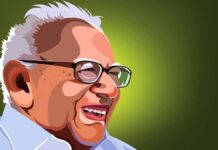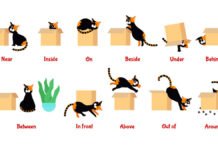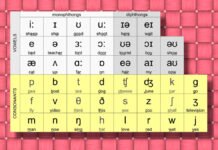Universal Grammar Theory states that all children are born with an innate ability to acquire, develop, and understand language. While different languages may have different kinds of grammar, humans have a natural predilection to learn and use them. The realization that very young children innately understand aspects of language has shattered the long-held belief that the mind starts as a blank slate. Behavioural psychologists had assumed that grammar and language were learned solely by listening to it being spoken. Now, the common belief is that language has an inherent genetic component. The human brain is hardwired to develop grammatical language, even without being exposed to it as a baby.
Noam Chomsky, a leading figure in the modern development of the idea of universal grammar, identifies precursors in the writings of Panini, Plato, and both rationalist and romantic philosophers, such as René Descartes (1647), Claude Favre de Vaugelas (1647), César Chesneau DuMarsais (1729), Denis Diderot (1751), James Beattie (1788), and Humboldt (1836). Chomsky focuses in particular on early efforts by the 17th-century Port Royal grammarians, whose rationalist approach to language and language universals was based on the idea that humans in the “civilized world” share a common thought structure. Chomsky is best known for his influence on linguistics, specifically, the development of transformational grammar. Chomsky believed that formal grammar was directly responsible for a person’s ability to understand and interpret mere utterances.
Although Chomsky did not believe that language was innate, he did theorize that animals and humans were both capable of similar types of comprehension when exposed to specific linguistic information, but only humans could continue to develop those abilities through a process he called a “language acquisition device” (LAD). Chomsky thought that if the LAD for all human languages could be discovered, it could result in features that would be universal to all tongues, known as “universal grammar.” In this regard, Chomsky argues that some fundamental structures of every language are innate and universal to all human tongues. He points to the fact that children develop a competent use of language even though they are often exposed to incomplete or inaccurate grammar, and they may not receive much direct teaching about how to speak.
Components that are considered to be universal include the notion that words can be classified into different groups, such as being nouns or verbs and that sentences follow a particular structure. Sentence structures may be different between languages, but each language has some kind of framework so that speakers can understand each other. Grammar rules, borrowed words, or idioms of a particular language by definition are not universal grammar.
Universal grammar, then, consists of a set of unconscious constraints that let us decide whether a sentence is correctly formed. But according to Chomskyian theorists, the process by which, in any given language, certain sentences are perceived as correct while others are not, is universal and independent of meaning. Thus, we immediately perceive that the sentence “Robert book reads the” is not correct English, even though we have a pretty good idea of what it means. Conversely, we recognize that a sentence such as “Colorless green ideas sleep furiously.” is grammatically correct English, even though it is nonsense.
A pair of dice offers a useful metaphor to explain what Chomsky means when he refers to universal grammar as a “set of constraints”. Before we throw the pair of dice, we know that the result will be a number from 2 to 12, but nobody would take a bet on its being 3.143. Similarly, a newborn baby has the potential to speak any number of languages, depending on what country it is born in, but it will not just speak them anyway it likes: it will adopt certain preferred, innate structures. One way to describe these structures would be that they are not things that babies and children learn, but rather things that happen to them. Just as babies naturally develop arms and not wings while they are still in the womb, once they are born they naturally learn to speak, and not to chirp or neigh.
Many authors, adopting the approach of evolutionary psychology, believe that language has been shaped by natural selection. Chomsky, for his part, does not see our linguistic faculties as having originated from any particular selective pressure, but rather as a sort of fortuitous accident. He bases this view, among other things, on studies that found that recursivity—the ability to embed one clause inside another, as in “the person who was singing yesterday had a lovely voice”—might be the only specifically human component of language. According to the authors of these studies, recursivity originally developed not to help us communicate, but rather to help us solve other problems connected, for example, with numerical quantification or social relations, and humans did not become capable of complex language until recursivity was linked with the other motor and perceptual abilities needed for this purpose. (Thus recursivity would meet the definition of a spandrel offered by Stephen Jay Gould.) According to Chomsky and his colleagues, there is nothing to indicate that this linkage was achieved through natural selection. They believe that it might simply be the result of some other kind of neuronal reorganization.

In the 1990s, Chomsky’s research focused on what he called the “minimalist program”, which attempted to demonstrate that the brain’s language faculties are the minimum faculties that could be expected, given certain external conditions that are imposed on us independently. In other words, Chomsky began to place less emphasis on something such as a universal grammar embedded in the human brain, and more emphasis on a large number of plastic cerebral circuits. And along with this plasticity would come an infinite number of concepts. The brain would then proceed to associate sounds and concepts, and the rules of grammar that we observe would be only the consequences, or side effects, of the way that language works.
Chomsky thus continues to believe that language is “pre-organized” in some way or other within the neuronal structure of the human brain, and that the environment only shapes the contours of this network into a particular language. His approach thus remains radically opposed to that of Skinner or Piaget, for whom language is constructed solely through simple interaction with the environment. This latter, behaviourist model, in which the acquisition of language is nothing but a by-product of general cognitive development based on sensorimotor interaction with the world, would appear to have been abandoned as the result of Chomsky’s theories.
Since Chomsky first advanced these theories, however, evolutionary biologists have undermined them with the proposition that it may be only the brain’s general abilities that are “pre-organized”. These biologists believe that to try to understand language, we must approach it not from the standpoint of syntax, but rather from that of evolution and the biological structures that have resulted from it. According to Philip Lieberman, for example, language is not an instinct encoded in the cortical networks of a “language organ”, but rather a learned skill based on a “functional language system” distributed across numerous cortical and subcortical structures.




























Good Devika